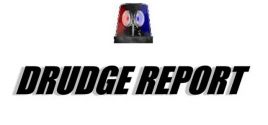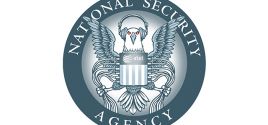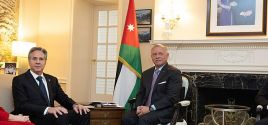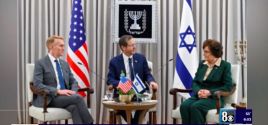President Obama is Not "Anti-Business" -- He's Just Anti-Free MarketPresidentís initiative revs up corporate welfareTimothy P. Carney Washington Examiner Jul. 11, 2010 |
Popular 
John Hagee Cheers Israel-Iran Battle as 'Gog and Magog War,' Will Lobby Congress Not to Deescalate

Right-Wing Media See Traffic Plummet in Wake of Algorithm Changes by Facebook, Google

Patriot ACT on Steroids: FISA Bill Forces 'An Enormous Range' of Businesses to Act as NSA Spies

Israel to Extend Water Agreement With Jordan 'For Helping Shoot Down Iranian Drones'

Congress Introduces ADL-Backed 'Countering Antisemitism Act' to Police Online Speech
 President Obama is not "anti-business," as many conservative critics charge. He's just anti-free market. To better understand this distinction, just look at his latest initiative: trying to double U.S. exports in five years. Obama's National Export Initiative, embraced by the big business lobby, is a raft of subsidies, handouts and "public-private partnerships." Obama uses the phrase "free trade" to describe this push, but there's nothing free about corporate welfare. The heart of Obama's initiative is accelerating the activity of the Export-Import Bank, a government agency that subsidizes U.S. exports. Ex-Im lends money directly to foreign companies or governments -- or guarantees private bank loans -- so that the foreign buyers will buy American. Calling Ex-Im "corporate welfare" isn't a slur -- it's a description. The White House brags that, as part of Obama's export initiative, "Ex-Im has more than doubled its loans to support American exporters from the same period last year. ... " Perhaps to blunt the corporate-welfare charge, the administration portrays Ex-Im as a savior of small business. Last month, Ex-Im Chairman Fred Hochberg held a photo op in Centennial, Colo., trumpeting the jobs saved at Stolle Machinery by a subsidy enticing a Saudi Arabian company to buy machinery from Stolle. But check out the minutes from the Ex-Im board meeting at which the Stolle subsidy was finalized. The other subsidies given either final or preliminary approval weren't so photo-op friendly: a federal guarantee for JP Morgan to subsidize a Boeing aircraft sale to Turkey's Pegasus Airlines; another loan guarantee for Boeing to sell jets to Asiana Airlines; $20 million in financing to subsidize GE turbines going to Slovakia; a direct loan of more than $20 million to the Pakistani government to buy GE locomotives; and yet another Boeing subsidy guaranteeing jet sales to Nigeria. If you think Boeing's showing up a lot, you're getting the point. Last year, Ex-Im dedicated 64 percent of loans and long-term guarantees to subsidize Boeing sales. Yes, this federal agency exists mostly to subsidize one corporation. Which brings us to the President's Export Council. Its chairman is Jim McNerney, CEO of Boeing. It makes sense that the nation's largest exporter should hold this seat -- and pocket most export subsidies -- but this just goes to show why increasing government tends to benefit the biggest businesses. If there were no Ex-Im, and no President's Export Council, Boeing's size wouldn't be so advantageous. McNerney this week expressed his confidence that Obama's council will advance policies to "expand free and fair trade." Of course, "free trade," when spoken by a politician, lobbyist or CEO, really means "subsidized trade." And the other Export Council nominees bring with them a whiff of subsidy suckling. Jeff Kindler is CEO of Pfizer and chairman of the Pharmaceutical Researchers and Manufacturers of America. PhRMA, the country's largest single-industry lobby, was a key champion -- and top beneficiary -- of Obama's health care bill. In fact, Pfizer justified Kindler's raise this year by pointing to his successful lobbying for Obamacare. Patricia Woertz, another Export Council nominee, runs Archer Daniels Midland, a legend in the field of subsidy suckling. ADM's core business for decades has been corn-based ethanol -- a fuel that exists only because of federal subsidies and mandates. Ironically, ADM also depends on protectionism -- tariffs on imported ethanol, but also sugar quotas that drive up the price of sugar and thus create demand for corn syrup as a sweetener. These sorts of businesses -- that live off of subsidies, handouts and government protections -- thrive under Obama. As a result, more businesses will come to the government teat. Meanwhile, increased taxes and regulations make it harder to make an honest buck. It's reminiscent of how Ronald Reagan described the 1970s. "Back then," he said, "government's view of the economy could be summed up in a few short phrases: If it moves, tax it. If it keeps moving, regulate it. And if it stops moving, subsidize it." _____ Timothy P. Carney is The Washington Examiner's lobbying editor. His K Street column appears on Wednesdays. |



